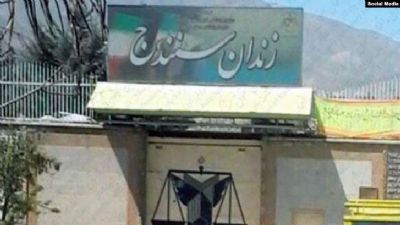Days after Amnesty International published a report on the high number of executions in Iran and several other countries, human rights monitors say Iran has executed three more people in minority-populated provinces.
Abdul Vahed Faizi and Ramyar (Payam) Mokhless, both from Baneh, were executed in Sanandaj Central Prison on Friday morning, according to the Hengaw human rights website and other Kurdish sources. Faizi and Mokhless belonged to the Kurdish minority.
The two men were reportedly arrested on charges of premeditated murder and sentenced to "qisas".
Qisas is an Islamic term meaning "retaliation in kind", "eye for an eye", or retributive justice.
At least six people have been executed in the cities of Sanandaj, Kermanshah, and Saqez prisons, western Iran, in recent days.
Meanwhile, despite numerous requests from human rights advocates, the Islamic Republic executed Shayan Saeedpour, a young convict who committed murder when he was a minor.
Shayanpour managed to escape from the prison last month during prison unrest, but recaptured days later in Iraq's autonomous Kurdistan region, and hanged on Tuesday morning, April 21, in Saqqez's central prison.
The Kurdish minority in Iran, estimated at six-seven million, live mainly in the country's Kurdistan province.
Parents are banned from registering their babies with certain Kurdish names, and religious minorities that are mainly or partially Kurdish are targeted by measures designed to stigmatize and isolate them, Kurdish sources maintain.
In the meantime, a member of another ethnic minority, Abul Basset Dahani, was hanged on Friday morning in the city of Zahedan, Sistan & Baluchestan province, southeast Iran, reports say.
Dahani belonged to the Baluch minority, who, like most Kurds, are Sunnis.
According to the latest annual Amnesty International report released last Tuesday, about one-third of executions worldwide are carried out in Iran.
April 26, 2020
Iran Executes Three More People In A Spree Of Recent Hangings
Date
April 26, 2020
Title
Iran Executes Three More People In A Spree Of Recent Hangings,
Radio Farda
Original Source

